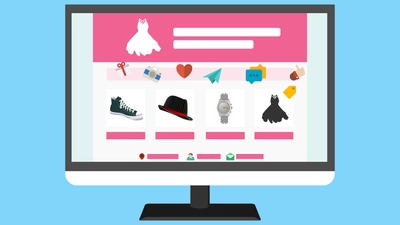Your homepage is an essential tool for your business and arguably the most critical page of your website. Having a well planned and efficient homepage is key to not only growing your business but also fostering existing client relationships and establishing credibility within your industry.
Overall, your website should be optimised for your customers, bring you targeted leads and of course increase sales.
Whether you are considering a complete redesign, a new website build or simply maintaining your current website, here are five things you should avoid on your homepage, to ensure your website works hard for your business.
1. Using too many digital tools
As the saying goes, less is more!
Pop-ups, flashing images, auto-playing videos, banners and scroll jacking are just a few examples of digital tools that have the potential to irritate visitors to your site. Just because you have access to them, does not mean you should use them.
The aim of each page on your website is to create a great user experience (UX) of your business. Unfortunately, too many 'bells and whistles' can mean that you achieve the opposite. Whilst these tools shouldn't be demonised, our advice is to proceed with caution; put yourself in your visitor's shoes and think, is this necessary? What value does it add?
To put that into context, let's take the example of auto-playing videos. If visitors to your site are coming from a mobile source, this could mean they are out in public or at work. If they are scrolling your site and a video suddenly starts playing, your visitors may find themselves scrambling to find the stop button or worse still, leaving your site altogether.
That said, in the right place, and with the right setting, videos can be a huge benefit to your websites.
2. Using carousels or banners
Whilst these were popular for some time, it is now widely accepted that having carousels or rolling banners on websites is actually more of an annoyance. Especially if a visitor sees an image or a post of interest, then has to search for it or wait for it to come back around! The use of carousels can also have a detrimental impact on page loading times, due to the use of multiple large images. Carousels can also remove an element of control from the user's perspective; if they are reading some copy and it gets whisked away, they have lost control. If they see a call to action and again it moves on, they have lost control.
3. Too many calls to action
As discussed in our home page content strategy article it's important to be clear about what you want people to do next. Using a clear 'Call to Action' (CTA) helps you achieve that.
For example, do you want people to learn more, get in touch, book a call or keep in touch?
Whilst you would like visitors to your site to do all these, focus on the one that is most important to your business and make it ultra-clear. Having too many options could lead to confusion and spoil the UX.
Overloading your users with too many CTAs may have the adverse effect of impacting your lead generation efforts as users may not take any action at all.
That said - too few clear CTAs can also be irritating for your users! You need to strike the balance between having enough calls to action prompts, whilst only focusing on just one or two actual 'next steps'.
4. Lacking customer focus
When writing copy for your website and especially your homepage, avoid using too much jargon. Assume visitors to your site are complete novices to your business or industry and keep it simple. If you have too many technical terms, abbreviations or acronyms, your message will not translate to your audience.
Your homepage needs to capture the user's attention, not bombard them with too much information that they may not understand. Avoid too much text and lengthy sentences. Remember the aim of the homepage is to grab users attention, so you can educate them further as they explore your site.
5. Not being clear
Clarity is key for your homepage so keep your messaging clear and concise. People visiting your website need to know immediately what it is you do and how it will benefit them. In essence, how will you fix their problem?
If you offer a variety of products or services, it can be tempting to try and showcase everything, however focusing on the one that is most important to your business will have the greatest impact for your audience.
By attempting to get too much information out, you risk diluting the impact and losing your visitors' attention. The perfect homepage should only include what is completely necessary for the customer - grabbing their attention and keeping it. Your homepage should be clear and functional, prompting curiosity for your audience to delve deeper into the rest of your website.




